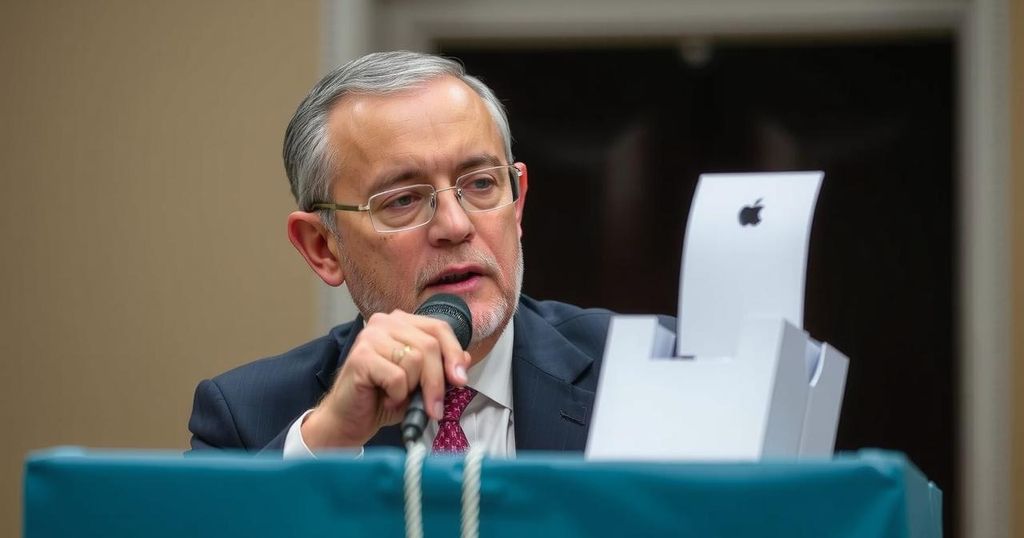Syria’s Election Timeline May Extend to Four Years, Says Interim Leader
Ahmad al-Sharaa, Syria’s de facto leader, announced that elections could take up to four years to organize, emphasizing the need for constitutional preparation. His interim government, established post-Assad, also plans to dissolve HTS. Al-Sharaa is seeking international legitimacy and engaging with foreign delegations to redefine Syria’s future amid significant infrastructural and political challenges.
Elections in Syria may be postponed for as long as four years, as indicated by Ahmad al-Sharaa, the de facto leader of the newly established interim government following the recent overthrow of Bashar al-Assad’s regime. Al-Sharaa emphasized the necessity of preparing appropriate infrastructure prior to conducting elections, highlighting the need for a comprehensive constitutional framework that may require an additional three years to develop. In his statements, he noted, “We are now in the re-foundation of the country and not just managing the country.” Despite this transitional governance, al-Sharaa assured that the Islamist group Hayat Tahrir Al-Sham (HTS), which he heads, aims for eventual dissolution, a plan that will be revealed during the upcoming National Dialogue Conference, the date of which remains unspecified. Furthermore, al-Sharaa’s government is seeking international recognition and has engaged in discussions with various diplomatic delegations, including a recent meeting with a Ukrainian delegation, reflecting a broader effort to redefine Syria’s diplomatic landscape.
The context for these developments stems from the recent upheaval in Syria, where the interim government led by Ahmad al-Sharaa has taken control after the ousting of Bashar al-Assad. This transition marks a pivotal moment in Syrian politics, as the new administration seeks to establish a governance structure while addressing significant infrastructure challenges. Conversations with international entities are critical as al-Sharaa strives to gain legitimacy on the global stage and move away from his organization’s historical associations with extremism. This period also opens discussions on the future role of external powers, particularly Russia and Iran, in the new political landscape.
Ahmad al-Sharaa’s remarks about the electoral timeline in Syria signal a cautious approach to rebuilding the nation following years of conflict. The proposed four-year delay in elections and the drafting of a new constitution indicate a focus on comprehensive reform rather than expedient governance. As al-Sharaa pursues international legitimacy and engages in diplomatic dialogues, the future of Syria hinges on his ability to navigate complex regional dynamics and establish a stable, representative government.
Original Source: www.cnn.com




Post Comment